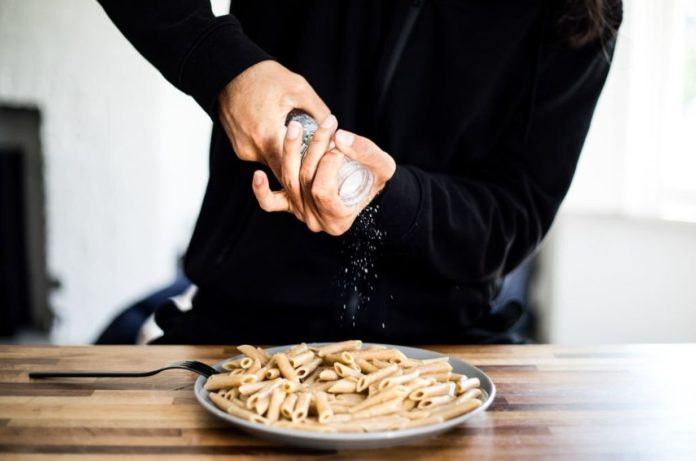Hypertension or High blood pressure increases your chance of life-threatening crises such as heart attacks and strokes. Even though this silent disease can have scary effects, your diet can help you keep your levels in check.
A new study published today in the European Heart Journal found that people who eat bananas, avocados, and salmon could reduce the negative effects of salt in the diet.
According to the study, potassium-rich diets were linked to lower blood pressure, especially in women who consumed a lot of salt.
According to research author Professor Liffert Vogt, “it is well established that increased salt consumption is linked to elevated blood pressure and a heightened risk of heart attacks and strokes.
When our diets consist primarily of processed foods, it is difficult to adhere to salt restriction recommendations. The body excretes more salt in the urine with the help of potassium.
“In our study,” says the study author, “dietary potassium was linked with the greatest health gains in women.”
The EPIC-Norfolk study recruited 24,963 participants (11,267 men and 13,696 women), aged 40 to 79 from general practices in Norfolk, UK, between 1993 and 1997.
For men, the average age was 59, while for women, it was 58. Along with completing a questionnaire about their lifestyle practices, participants had their blood pressure checked and a urine sample collected.
Dietary consumption was estimated using urinary salt and potassium levels. Participants were categorized into tertiles based on their intake of potassium and sodium (low, medium, and high).
Following the adjustment for age, sex, and sodium intake, the researchers examined the relationship between potassium intake and blood pressure.
In women, potassium intake (in grams per day) was tied to blood pressure; as potassium intake increased, blood pressure decreased.
When the relationship was looked at in terms of how much sodium a person ate (low, medium, or high), the relationship between potassium and blood pressure was only seen in women who ate a lot of sodium.
For every 1 gram increase in daily potassium, systolic blood pressure dropped by 2.4 mmHg. Potassium was shown to have no effect on blood pressure in males.
During a median follow-up time of 19.5 years, 13,596 participants (55%) were hospitalized or died because of heart disease.
After taking into account age, sex, BMI, sodium intake, use of lipid-lowering drugs, smoking, drinking, diabetes, and a previous heart attack or stroke, the researchers looked at the link between potassium intake and cardiovascular events.
In the entire cohort, persons who consumed the most potassium had a 13 percent lower risk of cardiovascular events than those who consumed the least potassium.
When men and women were looked at separately, the risk reductions for each were 7 percent for men and 11 percent for women.
The link between potassium and cardiovascular events in both men and women was unaffected by the amount of salt consumed.
The findings imply that potassium helps maintain heart function, but that women get more from it than males, according to Professor Vogt.
Regardless of salt intake, the link between potassium and cardiovascular events was the same, indicating that potassium may protect the heart in additional ways in addition to increased sodium excretion.
The World Health Organization says that adults should get at least 3.5 grams of potassium and less than 2 grams of sodium (5 grams of salt) every day.
Vegetables, fruit, nuts, legumes, dairy products, and fish are among the foods high in potassium. For example, a 115-gram banana has 375 mg of potassium, 154 grams of cooked salmon has 780 mg, a 136-gram potato has 500 mg, and a cup of milk has 375 mg.
“Our findings indicate that a heart-healthy diet goes beyond limiting salt to boosting potassium content,” adds Professor Vogt.
“Food companies can help by swapping standard sodium-based salt for a potassium salt alternative in processed foods. On top of that, we should all prioritise fresh, unprocessed foods since they are both rich in potassium and low in salt,” Professor Vogt concludes.
Image Credit: Getty
You were reading: This Popular Food Reduces Negative Effects of Salt And Hypertension Too
